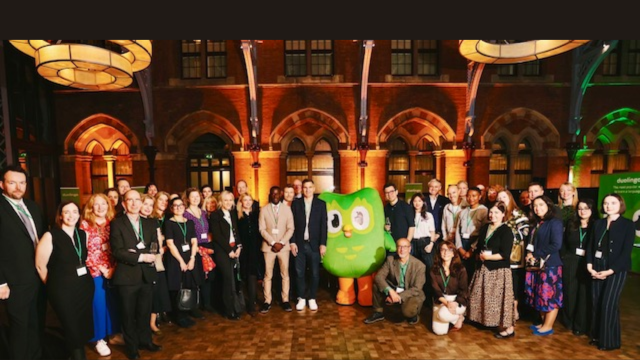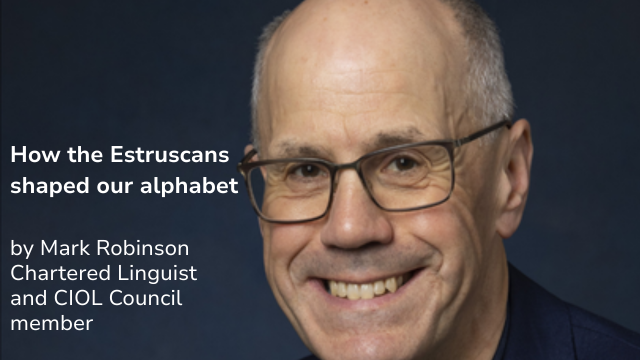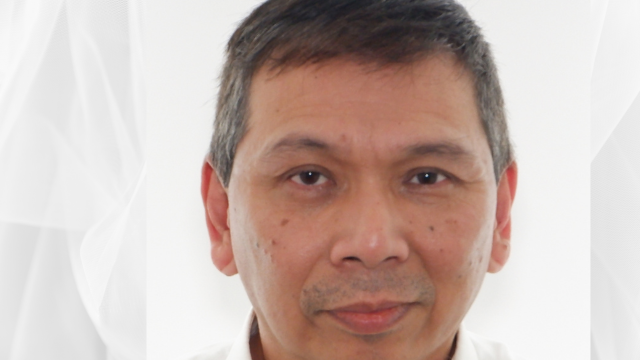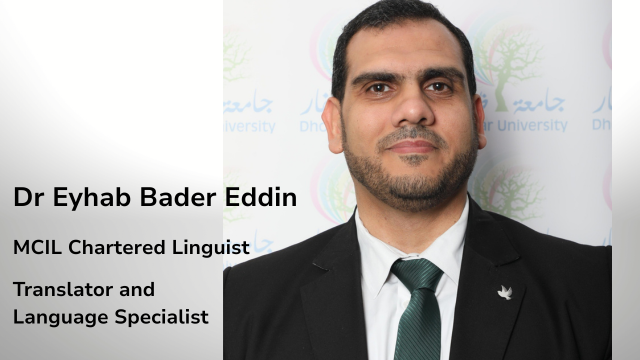-
QUALIFICATIONS
- For Linguists Worldwide
- For UK Public Services
- Preparation
- Policies & Regulation
-
MEMBERSHIP
- Join CIOL
- Professional Membership
- Affiliate Membership
- Chartered Linguist
- Already a member?
- Professional conduct
- Business & Corporate Partners
-
LANGUAGE ASSESSMENTS
- English
- All Other Languages
-
CPD & EVENTS
- Webinars & Events
- CIOL Conferences
- Networks
- CIOL Mentoring
-
NEWS & VOICES
- News & Voices
- CIOL eNews
- CIOL Awards
- The Linguist Magazine
- Jobs & Ads
-
RESOURCES
- For Translators & Interpreters
- For Universities & Students
- Standards & Norms
- CIOL & AI
- All Party Parliamentary Group
- In the UK
- UK Public Services
- Find-a-Linguist
What future for translation and interpreting training institutions?

By Claudio Fantinuoli PhD
In this post, I aim to explore the future of translation and interpreting education in academia, particularly the trajectory of translation departments and faculties.
In short, my prediction is that translation departments and faculties will gradually lose relevance and, ultimately, at least some of them, sadly, disappear. Translation as a discipline will undoubtedly survive, as the need for translation will persist, along with the very much vivid academic interest in studying it.
The emergence of departments and faculties specialising in the training of translators and interpreters was a response to the post-World War II multilingual and interconnected world, particularly after the 1960s, when globalisation demanded the translation and interpretation of vast amounts of information. Universities capitalised on this demand, developing specialised curricula to train professionals for this growing market. It was a win-win situation: advanced translation and interpreting required highly educated professionals, while the humanities found a chance to realise their growing aspiration for greater professionalisation.
Young girls and boys loved this. Languages have always captivated people. The prospect of learning languages for a rather unknown but respected profession, coupled with an enticing narrative of travel, cultural exchange and knowledge, contributed to the appeal of these programmes.
Around the start of the new millennium, likely by 2010, a shift began to emerge. In many countries, student interest in language-related disciplines started to decline – most notably in Europe. This trend has only accelerated in recent years, with departments closing or at least struggling to maintain sustainable number of students.
In my view, this decline in interest can be attributed to two main factors. First, we must acknowledge that, in most cases, what motivated 18-year-old students to enroll in translation faculties was not necessarily the career prospects. Instead, it was the allure associated with the profession. However, this once-glamorous narrative has gradually lost its charm. For younger generations, international travel has become routine, at least in the Western world, thanks to cheap flights and 24/7 video and audio connectivity. Speaking English with foreigners has become second nature – an everyday occurrence rather than something awe-inspiring.
Second, even for those contemplating a professional career at an early age rather than just the allures, the rise of AI technologies has delivered the scacco matto (checkmate) to this profession's attractiveness. Recent advancements in spoken language translation have only reinforced this belief. The idea that not only written translation but also the prestigious field of interpreting could be automated is gaining traction.
The reality is that building a rewarding career as a translator or interpreter is becoming increasingly difficult. This was already true 30 years ago, but today, it seems evident that only the very best – the top tier – might secure such opportunities, perhaps in exclusive international institutions.
My recommendations for institutions to avoid obsolescence include:
First, for translation and interpreting training, prioritise short programs – no longer than 6 months or one-year courses – over maintaining full undergraduate and graduate tracks, such as the European 3+2 model. These targeted offerings can effectively meet specific industry demands without requiring lengthy commitments.
Second, if maintaining longer programs is still a necessity, avoid the outdated paradigm of narrow specialisation that once defined translation and interpreting curricula at under and postgraduate level. Instead, treat translation and interpreting as short-term specialisations for students who already possess advanced, general skills.
Third, resist the urge to react to every technological trend with short-sighted changes. For example, offering classes on how to prompt GPT for translation or using AI to create glossaries is not true modernisation. Young people don't need universities to teach them such skills – they are often more adept at using these tools than faculty. Teach technology: NLP, ML, history, management, etc.
Finally, do not listen to pundits who claim that everything is fine and small changes will save you. True reform requires bold action. Bring in fresh visions, new talents and innovative ideas.
Let's not ever forget that amid these challenges lie opportunities. Beyond boldly reforming existing structures – which is admittedly difficult –there is also the possibility of creating something entirely new. Perhaps a new type of institution is needed – one that anticipates future changes rather than merely reacts to them.
Dr Claudio Fantinuoli is a researcher, innovator and founder in speech technologies. He holds an MA in Conference Interpreting, a PhD in Applied Linguistics and a Habilitation* in Interpreting Studies, and has taught at the universities of Innsbruck, Vienna and Karlsruhe. He currently holds a tenured researcher position at the University of Mainz and serves as Chief Technology Officer at KUDO Inc.
*postdoctoral qualification for full professorships in European academia
Visit Claudio’s website for a longer article on this subject.
Views expressed on CIOL Voices are those of the writer and may not represent those of the wider membership or CIOL.
Filter by category
More
The Chartered Institute of Linguists (CIOL), Incorporated by Royal Charter, Registered in England and Wales Number RC 000808 and the IoL Educational Trust (IoLET), trading as CIOL Qualifications, Company limited by Guarantee, Registered in England and Wales Number 04297497 and Registered Charity Number 1090263. CIOL is a not-for-profit organisation.








